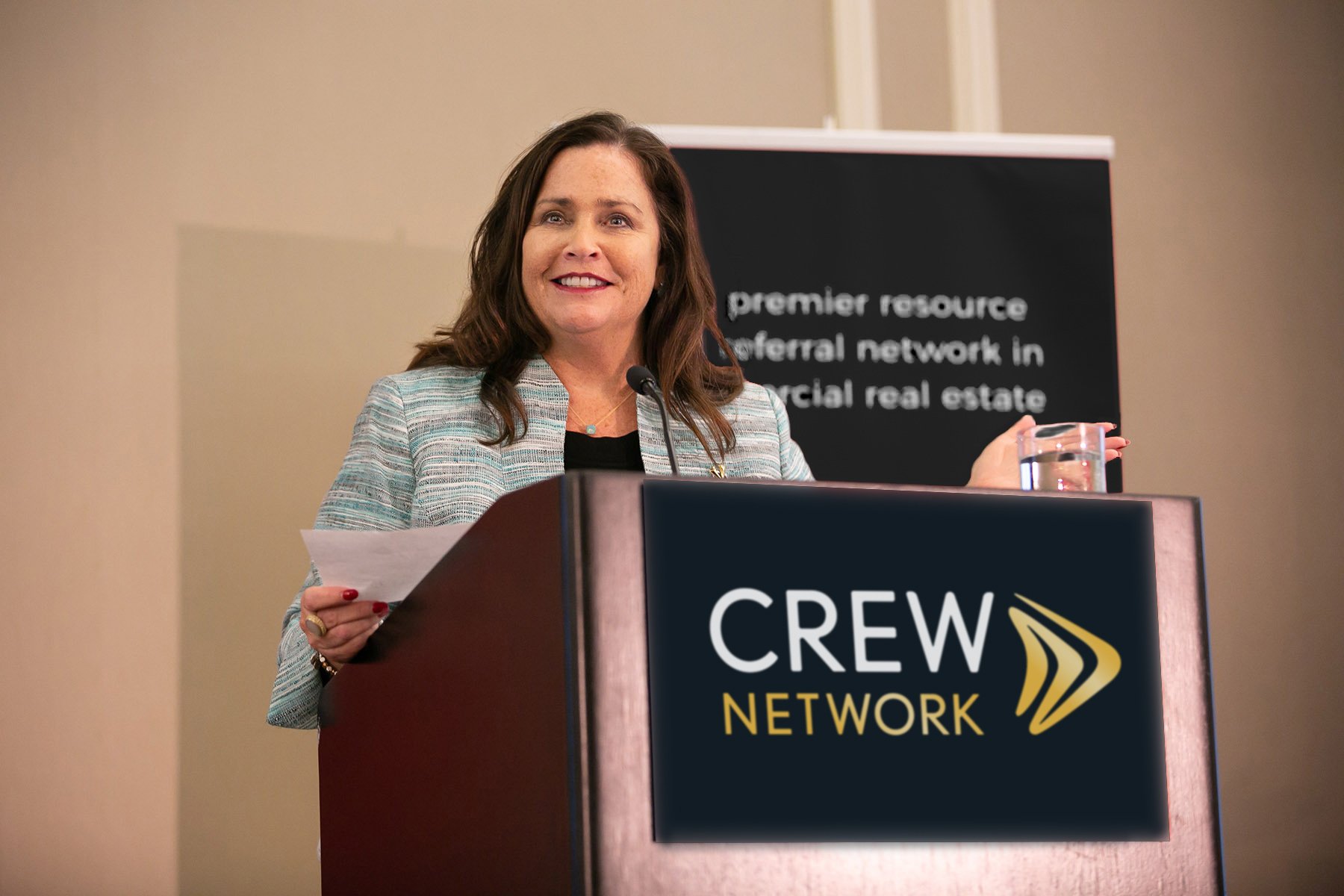When John Combs first came out as gay 20 years ago, he was worried it would hurt him in his career. He also thought he was the only gay man working in the industry. It turns out he was wrong. There were plenty of LGBTQ+ professionals in commercial real estate, he says, they were just very discrete.
"I quickly learned, for example, at an annual convention there was a group of LGBTQ+ individuals who quietly met," said Combs, who is the founder of RiverRock Real Estate, a property and asset management firm. "The group was invited via a blind copy to protect identities. Today, this would not be necessary. The industry has come a long way in 20 years."
Recommended For You
This is true. But some wonder if it has come far enough.
Gay pride and the LGBTQ+ community overall has made great strides nationally in most every industry. Count commercial real estate among them, but CRE industry professionals say there's more work to be done in creating an accommodating workplace and company culture that welcome the group.
Shelby Procopio, director of people and culture at The Procopio Companies, says that commercial real estate has experienced pressure to keep up with other industries when it comes to diversity and LGBTQ+ initiatives.
Many that have put greater emphasis on diversity, equity, inclusion goals and initiatives are driving the advancement.
"The CRE industry has made slow but meaningful progress toward greater diversity, however many firms are still failing at implementing plans to address their lack of diversity," Procopio says. "While the challenge of diversity in real estate is certainly a hot topic, there is no question that shifting the thought patterns embedded here take a significant amount of time, resources, and intentionality."
Procopio said that creating a company culture of inclusivity "through genuine care and leadership of employees—where staff feel heard, acknowledged and held accountable—sets the stage for success."
She said that corporate initiatives should align with the companies' values and influence culture.
"Internal initiatives, policies, and hiring practices can act as true change agents if they are championed by the leadership team, and staff members feel they are genuine," Procopio says. "As with many industries, CRE has experienced the challenge of intentional mindset shifts to work towards better across the board inclusivity."
A BASELINE UNDERSTANDING REQUIRED
Laura Dietzel, real estate senior analyst with RSM US LLP, says that partnerships between national real estate associations and advocacy groups can serve to support greater LGBTQ+ diversity in the CRE industry, but a baseline understanding of the CRE population is needed.
"Creating goals and charting progress around LGBTQ+ diversity in the workforce requires understanding where we are currently," she says. "Currently, there is very little existing research about the number identifying as LGBTQ+ within CRE, although some polling is currently underway to try to gain a comprehensive view on the industry."
Dietzel says that having this understanding will be more important as younger generations are increasingly identifying as LGBT, according to a recent Gallup poll.
"LGBTQ+ community members require additional support from corporations for further attraction, retention and advancement efforts in the workplace," Dietzel says. "Alliances and advocacy groups can help the industry understand what LGBTQ+-identifying individuals are looking for in the workforce.
"And the role of governance teams/boards in supporting diversity is key as initiatives implemented within organizations will help further drive DEI goals, including for LGBTQ+."
RSM research shows that while support for environmental, social and governance initiatives remains high among middle market companies, their ESG approach and priorities are evolving and becoming more sophisticated.
For example, RiverRock Real Estate's DEI committee was formed in 2020 to create rewarding opportunities for both current and future employees, particularly from underrepresented groups. Through outreach, recruitment efforts, and extensive education, RREG tries to promote a culture where every individual feels valued.
In 2022 RREG achieved designation as a Certified LGBT enterprise by the National LGBT Chamber of Commerce.
The National LGBT Chamber of Commerce is the business voice of the LGBT community and largest advocacy organization dedicated to expanding economic opportunities and advancements for LGBT people.
Another example is RE Tech Advisors, which "strives to set an example within our industry on how to make and execute these types of commitments, and platforming and supporting the LGBTQ+ community is an important component of its broader Diversity, Equity, Inclusion, and Belonging campaign," CEO Deb Cloutier says.
As of September, RE Tech's LGBTQ+ team composition is 25 percent.
"These are results that stand in contrast to industry norms even 10 years ago," Cloutier says.
IT CAN MAKE SOME UNCOMFORTABLE
Chely Wright, chief diversity officer at Unispace, and an LGBTQIA rights advocate, says that when she joined Unispace two years ago, she noticed certain parallels between the CRE field and her background in the country music industry.
Wright recognized that the history and progress of LGBTQIA in the CRE industry echoed her experiences as the first openly gay commercial country music star.
"Nothing excites a formerly closeted LGBTQ country music artist more than making change in places where we didn't think it was possible," Wright said.
Change is what Wright brought to Unispace, a strategy, design, construction firm, where she spoke to hundreds of employees and learned there weren't really openly gay people at the firm. Two years later, there are many openly LGBTQIA Unispace employees around the globe, some of whom came out recently after years with the firm.
"This change did not happen overnight, and it didn't happen by accident," Wright says. "It was the result of intentional messages and initiatives that came from the top.
"When Steve Quick became CEO more than two years ago, he made it clear that he was an LGBTQIA ally and these issues were important to the firm—and we cannot underestimate the significance of having a white, straight, cis male CRE CEO talk about queer issues."
THE POWER OF ALLYSHIP
Wright said there is power in active allyship—not just assuming people are safe to be who they are at work but saying it out loud.
"The biggest hindrance to progress is 'as always,'" she said. "We try to eliminate those words from our vocabulary when we talk about DEIB and strive to create a no-gaslighting zone."
Next, Unispace launched Share Your Story, an internal initiative to celebrate Pride month, which elevated the stories of several LGBTQIA employees, along with an ally.
"I'm a firm believer that when people know better, they do better, and when LGBTQIA issues are personally connected to valued colleagues, a lot of progress can be made," Wright says. "Our Share Your Story initiative was a huge contributor to our collective growth."
As the firm continued to prioritize LGBTQIA allyship and advocacy in the organization, Wright says it made a few people uncomfortable and maybe even caused a couple of folks to re-evaluate their being with the business, but Unispace was comfortable with that.
"We stay focused on the 'moveable middle'—the 75% of people who don't have strong, pre-baked opinions," she says.
One highlight, Wright says, has been seeing employees who were indifferent on LGBTQIA issues become true allies—not only at Unispace but with clients, too—by authentically and confidently encouraging them to think about how to bring LGBTQIA equality and inclusion into their workplace design and culture.
"If we want to see more LGBTQIA people in the CRE industry, it's important to meet them where they are. We need to go into those communities and share all that this industry has to offer and spark interest."
To lead the way, Unispace has been working closely with the National Gay & Lesbian Chamber of Commerce (NGLCC), the premier certifying body for LGBTQIA-owned US businesses.
A COMFORTABLE SEAT AT THE TABLE
Hines believes it is imperative that its team should mirror the community it supports.
Hines has made strides in advancing its DEI initiatives through its employee resource groups, a platform focused on connecting employees, developing leaders, celebrating diversity and serving communities. However, the global firm recognizes that the industry has a long way to go.
So the firm launched the Hines PRIDE Network with the assistance of Hampton Slagle, specialty leasing associate for Atlantic Station.
Working with a counterpart of hers from the corporate office in Houston, Slagle says its goal is creating a sense of belonging for employees to be their authentic self both while at work and outside of work.
"We are striving to make the 'table' comfortable for those who identify as a member of the LGBTQ+ community, specifically those at officer or C-suite levels, to be authentic and not feel that being out at work will impact their performance within the industry or organization," he says.
Slagle says the group is working on programming to be shared with the broader organization on the importance of understanding critical matters in the LGBTQ+ community: the use of proper pronouns; the permittance of those to wear business attire that makes them feel more comfortable, rather than the traditional "standards" for genders; and honing in on creating a network of allies from all levels to support the promotion and advancement of LGBTQ+ members of the organization.
He says there is room for exponential growth and visibility for members of the LGBTQ+ community through partnerships with both national and regional organizations, as well as tying into local colleges from a recruiting standpoint by tapping into student organizations focused on LGBTQ+ students and displaying that CRE is a diverse community and a great career path.
Luke Tanguay, senior associate, and Rob Hagan, associate principal, at the Boston-based design firm CBT, report they have seen "sea change" in the representation of LGBTQ+ professionals in the architecture and design industry.
Many companies actively publicize their celebration of Pride, as well as how their workplace supports LGBTQ+ individuals through policy, culture, and practice.
CBT launched a robust event series for Pride Month that has since become an annual opportunity to learn, share stories, and reflect. It includes a Q&A session where employees can anonymously ask important questions about issues facing the LGBTQ+ community and how to become a more effective ally; guest speakers who have played a significant role in advocating for equality and fighting against discrimination; and a drag bingo night that raises money for organizations that provide critical resources to the LGBTQ+ community.
"As more of our colleagues in architecture and design adopt equitable, inclusive practices, the richer and more dynamic the industry will become," Tanguay says.
WITHOUT FULL COMMITMENT, A 'RISKY ENDEAVOR'
Natasha Soobramanie, principal, EDI & talent development, BentallGreenOak, says that until the industry commits to constructing workplace and property-level cultures that are inclusive and offer people a high degree of psychological safety, equity and diversity, CRE will continue to be challenged.
She said it can be "a risky endeavor" for LGBTQ+ community members to authentically bring this dimension of their diversity to the workplace where there is uncertainty for how open self-identification will be received.
"While our industry has achieved progress in our awareness and engagement with LGBTQ+ communities, leaders of our industry must be equally committed to bringing that focus to reform on policies, self-education, benefits, and expressions of allyship.
"We are intensifying our focus on identifying and tackling areas where obstacles for diverse and underrepresented communities, including the LGBTQ+ community, may be inhibiting our ability to offer fair access and opportunity for all."
© Touchpoint Markets, All Rights Reserved. Request academic re-use from www.copyright.com. All other uses, submit a request to [email protected]. For more inforrmation visit Asset & Logo Licensing.





